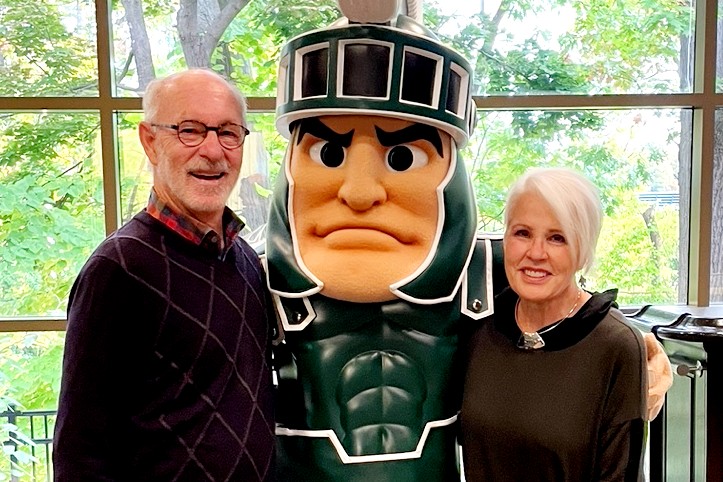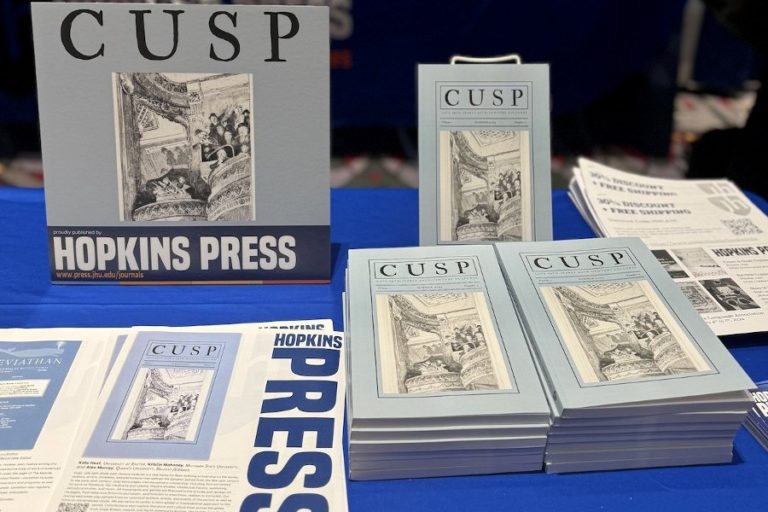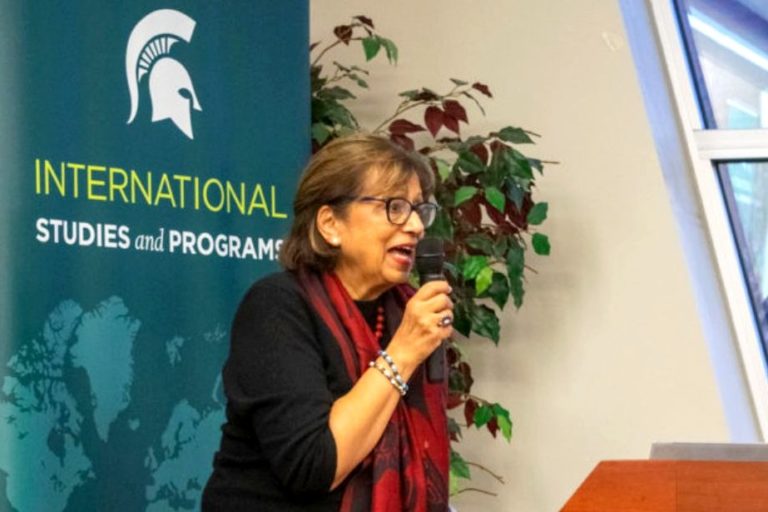As we continue to process the abhorrent killings of George Floyd, Breonna Taylor, Ahmaud Arbery, and Rayshard Brooks, and witness the largest protests in the U.S. since 1968, the leadership of the MSU Department of English wishes to affirm its commitment to anti-racist action. We are outraged by the continued racist violence against Black people by the police and we express our solidarity with the protesters as they confront systemic police brutality.
These urgent protests nationwide against the ongoing legacy of white supremacy and anti-Blackness within all institutions of U.S. life call upon us as teachers, scholars, and humanists to work to transform Michigan State University, and our own Department. While we grieve those who have died at the hands of the police, we are also hopeful that these protests may bring foundational changes to the racism pervasive in the U.S.’s legal and criminal justice systems as well as its educational systems. Institutional transformation begins at home.
During AY 20-21, our Department leadership commits to the following actions:
- The Undergraduate Committee and the Equity and Justice Committee will make recommendations regarding best practices for syllabi construction that decolonize content, center marginalized histories, and foreground the role of the arts and humanities in struggles for social justice and liberation.
- The Undergraduate Committee and Equity and Justice Committee will lead a department discussion around a broad re-envisioning of the curricular structure of the English major so that it refuses to privilege an unmarked whiteness or a colonial framework, especially in our gateway courses and our core literary history courses. These committees will also make recommendations for rethinking the “diversity literature” requirement, which marginalizes a range of literatures that should be integrated into the core of our curriculum.
- Create the Russel B. Nye Fellowship for Interdisciplinary Curricular Enhancement in English. This fund, aimed to provide emergency support to advance graduate students and UNTF faculty in the wake of COVID-19, will privilege proposals that further anti-racist and social-justice oriented curricular initiatives.
- Launch a Department-sponsored Faculty Learning Community on anti-racist pedagogy and the disciplinary-specific legacies of white supremacy in English Departments that will run through the academic year. Here, we affirm our ongoing commitment to faculty training and professional development.
- Sponsor a new Research Workshop on anti-racist pedagogy to make a space for graduate students to engage with faculty on pedagogical strategies, tools, and best practices; here, we build on the important work our graduate students have begun this summer on anti-racist teaching in online learning environments, and the work of the 2017-19 “Race, Pedagogy, and Lit*” workshops.
- Center our commitments to diversity, equity, and inclusion as we embark on our Department’s strategic planning process in the fall, and as we work with CAL Development on our Department’s strategic fundraising priorities.
- Host an accountability town hall for undergraduate and graduate students during both the fall and spring semester.
- Re-launch of our Students of Color group for undergraduate community building, led by the Associate Chair for Undergraduate Studies and the Director of Literary Studies.
- Offer a Department community reading and screening series on racial justice involving faculty, graduate, and undergraduate students, co-led by the Undergraduate Committee and the Director of Literary Studies. Curate related anti-racist teaching, reading, and screening resources/links on our Department website.
- Work on a College of Arts and Letters committee to engage the MSU Police Force in conversations about police brutality, their budget, and their policing practices—especially the MSUPD’s use of an armored “Bear Cat” vehicle and other military equipment.
- Engage our new Provost, Dr. Teresa Woodruff, in discussion about the centrality of DEI initiatives to the arts and humanities mission at MSU. We acknowledge that universities reproduce the structural inequalities at the core of our society. We will work collectively with our CAL colleagues to scale up the department-level actions described above to the higher levels of a still-too-hierarchical institution.
Sara Allison, Fiscal Officer
Zarena Aslami, Associate Professor and Associate Chair for Graduate Studies
Kristin Mahoney, Associate Professor, Director of Literary Studies, and incoming Associate Chair for Graduate Studies
Andrew Murray, Undergraduate Advisor
Justus Nieland, Professor and Chair
Emery Petchauer, Associate Professor and Coordinator of the English Education Program
Robin Silbergleid, Associate Professor and Director of the Creative Writing Program
Marina Valli, Graduate and Undergraduate Secretary
Joshua Yumibe, Associate Professor and Director of Film Studies Program
Recent Department Initiatives
We see these AY 20-21 actions as building on several new initiatives and changes to our curriculum and governance structure over the last several years that put into practice our commitments to an anti-racist humanities agenda and to a more diverse, equitable, and inclusive Department of English.
Last year, we added a new standing committee to our shared governance structure: the Equity and Justice Committee. Last month, the faculty voted to approve expanding the constitution of this committee so that its representatives serve on all major standing committees in the Department. This way, the work of the Equity and Justice Committee is at the core of the teaching, research, and service missions of the Department.
In the fall of 2018, we launched the MUSE Scholars Program: Mentoring Underrepresented Scholars in English. Supported by a grant from the MSU Graduate School, the MUSE program offers a multi-day workshop for prospective graduate students from historically underrepresented groups in the academy. The mentoring and recruitment program is now at the center of our graduate program, and intersects with faculty-led projects across the College and university like the Womxn of Color Initiatives and the Electric Marronage taller.
In 2019-20, we added a new core theory requirement to our graduate program: ENG 800: Race, Gender, and the Human. Officially on the books for AY 21-22, the course offers an interdisciplinary study of difference in the U.S. and the humanities. The course explores the racist and anti-Black constructions of the category of the human that historically shaped the formation of humanities disciplines in the U.S. It asks students to attend to the development of race, ethnicity, gender, and their critical constructions in relation to the disciplinary project of the humanities.
Anti-racist pedagogy is a particular research strength of our English Education faculty and its commitment to educational justice. In the fall of 2018, for example, faculty and students in our English Education program collaborated with the College of Education on a series of events surrounding Angie Thomas’s novel, The Hate U Give. The THUG series explored the ramifications of the novel’s central point that, as Dr. April Baker-Bell (Assistant Professor of English) put it, “Black language reflects Black people’s ways of knowing, interpreting, surviving, and being in the world.”
Beginning in AY 17-18, and continuing in 18-19, the department sponsored a faculty- and graduate student-coordinated Research Workshop on “Race, Pedagogy, and Lit.” During the 19-20 academic year, the Department began offering professional development workshops for faculty devoted to anti-racist pedagogy, inclusive teaching, and trauma-informed pedagogy. We began collecting and sharing resources for more inclusive and less violent teaching practices, and for pedagogy better informed by the histories of anti-Blackness and settler colonialism. Early in the spring semester, with support from the College of Arts and Letters, the department hosted Dr. Koritha Mitchell for a faculty workshop titled “Responsible Teaching in a Violent Culture.”


